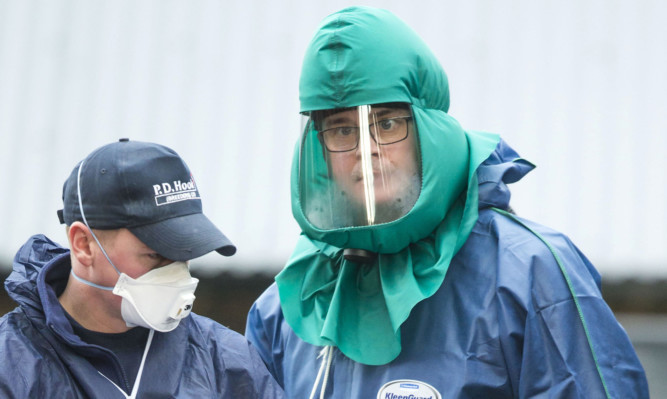A one-kilometre protection zone remains in place around a poultry farm in Fife where a “mild strain” of bird flu has been confirmed.
The case of H5N1 avian influenza was identified among chickens at Craigies Poultry Farm near Dunfermline and further tests are being carried out.
The birds are to be culled and poultry producers have been urged to be vigilant but Scotland’s chief veterinary officer Sheila Voas described it is a “very mild strain” of bird flu, said to be less serious than other forms of the virus that have caused concern in recent years.
The risk to human health in this case is considered “very low”, according to Health Protection Scotland.
Restrictions in the Fife control zone have been imposed, including on the movement of poultry, carcasses, eggs, used poultry litter and manure and restrictions on bird gatherings.
.@scotgov's map of the 1km bird flu protection zone around a Fife farm https://t.co/NbZV7PESTD pic.twitter.com/5Q0IIeZZkM
— Richard Rooney (@C_RRooney) January 11, 2016
The discovery comes after a number of cases of avian influenza across Europe in recent months. Three cases were found in the UK last year.
Ms Voas said: “All the evidence so far suggests we are dealing with a very mild form of H5N1 avian influenza, which is not the same as the strain that has been causing problems in Asia and north Africa. Further tests are currently being carried out to confirm this but, in the meantime, we are taking no chances.
“As a precaution to prevent the spread of disease – and in line with our robust procedures for dealing with avian flu – we have already put in place movement restrictions around the farm and all birds on the premises will be humanely culled. Consumers should not be concerned about eating eggs or poultry given the expert advice about food safety and human health.
“We are looking into possible sources of this infection in Scotland but it is normal for such viruses to circulate among wild bird populations, especially waterfowl. However, it is important that poultry keepers remain vigilant for any signs of disease and to ensure they are maintaining good biosecurity on their premises.”
Rita Botto, head veterinarian of Food Standards Scotland said: “On the basis of current scientific evidence, Food Standards Scotland’s advice is that bird flu does not pose a food safety risk for UK consumers.”
Dr Jim McMenamin, consultant epidemiologist and respiratory infection lead for Health Protection Scotland said: “Based on what we know about this strain of avian influenza and the actions that have been taken, the risk to human health in this case is considered very low.
“Health Protection Scotland continues to work closely with Animal Health throughout this investigation.”
